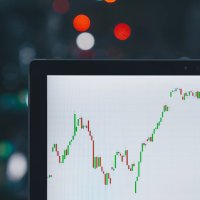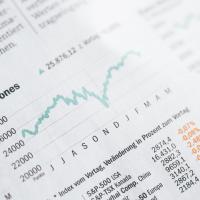Home > Investment Guide > Investing Basics
What is Equity investment?
Direct holdings and pooled funds
The equities held by private individuals are often held via mutual funds or other forms of pooled investment vehicle, many of which have quoted prices that are listed in financial newspapers or magazines; the mutual funds are typically managed by prominent fund management firms (e.g. Fidelity or Vanguard). Such holdings allow individual investors to obtain the diversification of the fund(s) and to obtain the skill of the professional fund managers in charge of the fund(s). An alternative usually employed by large private investors and institutions (e.g. large pension funds) is to hold shares directly;in the institutional environment many clients that own portfolios have what are called segregated funds as opposed to, or in addition to, the pooled e.g. mutual fund alternative.
Pros and Cons
The major advantages of investing in pooled funds are access to professional investor skills and obtaining the diversification of the holdings within the fund. The investor also receives the services associated with the fund e.g. regular written reports and dividend payments (where applicable). The major disadvantages of investing in pooled funds are the fees payable to the managers of the fund (usually payable on entry and annually and sometimes on exit) and the diversification of the fund that may or may not be appropriate given the investors circumstances.
It is possible to over-diversify. If an investor holds several funds, then the risks and structure of his overall position is an amalgam of the holdings in all the different funds and arguably the investors holdings successively approximate to an index or market risk.
The costs or fees paid to the professional fund management organisation need to be monitored carefully. In the worst cases the costs (e.g. fees and other costs that may be less obvious hidden fees within the workings of the investing organisation) are large relative to the dividend income payable on the stock market and to the total post-tax return that the investor can anticipate in an average year.
Analysis
To try to identify good shares to invest in, two main schools of thought exist: technical analysis and fundamental analysis. The former involves the study of the price history of a share(s) and the price history of the stock market as a whole; technical analysts have developed an array of indicators, some very complex, that seek to tease useful information from the price and volume series. Fundamental analysis involves study of all pertinent information relevant to the stock and market in question in an attempt to forecast future business and financial developments including the likely trajectory of the share price(s) itself. The fundamental information studied will include the annual report and accounts, industry data (such as sales and order trends) and study of the financial and economic environment (e.g. the trend of interest rates).
Share price determination
Ultimately, at any given moment, an equity's price is strictly a result of supply and demand. The supply is the number of shares offered for sale at any one moment. The demand is the number of shares investors wish to buy at exactly that same time. The price of the stock moves in order to achieve and maintain equilibrium.
When buyers outnumber sellers, the price rises. Eventually sellers enter, and/or buyers leave, achieving equilibrium between buyers and sellers. When sellers outnumber buyers, the price falls. Eventually buyers enter, and/or sellers leave, again achieving equilibrium.
Thus, what a share of a company at any given moment is determined by all investors voting with their money. If more investors want a stock and are willing to pay more, the price will go up. If more investors are selling a stock and there aren't enough buyers, the price will go down.
Of course, that does not explain how people decide the maximum price at which they are willing to buy or the minimum at which they are willing to sell. In professional investment circles the Efficient Markets Hypothesis (EMH) continues to be popular, although this theory is widely discredited in academic and professional circles. Briefly, EMH says that investing is rational; that the price of a stock at any given moment represents a rational evaluation of the known information that might bear on the future value of the company; and that share prices of equities are priced efficiently, which is to say that they represent accurately the expected value of the stock, as best it can be known at a given moment. In other words, prices are the result of discounting expected future cash flows.
The EMH model, if true, has to at least two interesting consequences. First, because financial risk is presumed to require at least a small premium on expected value, the return on equity can be expected to be slightly greater than that available from non-equity investments: if not, the same rational calculations would lead equity investors to shift to these safer non-equity investments that could be expected to give the same or better return at lower risk. Second, because the price of a share at every given moment is an "efficient" reflection of expected value, then—relative to the curve of expected return—prices will tend to follow a random walk, determined by the emergence of news (randomly) over time. Professional equity investors therefore immerse themselves in the flow of fundamental information, seeking to gain an advantage over their competitors (mainly other professional investors) by more intelligently interpreting the emerging flow of information (news).
The EMH model does not seem to give a complete description of the process of equity price determination. For example, stock markets are more volatile than EMH would imply. In recent years it has come to be accepted that the share markets are not perfectly efficient, perhaps especially in emerging markets or other markets that are not dominated by well-informed professional investors.
Another theory of share price determination comes from the field of Behavioral Finance. According to Behavioral Finance, humans often make irrational decisions—particularly, related to the buying and selling of securities—based upon fears and misperceptions of outcomes. The irrational trading of securities can often create securities prices which vary from rational, fundamental price valuations. For instance, during the technology bubble of the late 1990s (which was followed by the dot-com bust of 2000-2002), technology companies were often bid beyond any rational fundamental value because of what is commonly known as the "greater fool theory". The "greater fool theory" holds that, because the predominant method of realizing returns in equity is from the sale to another investor, one should select securities that they believe that someone else will value at a higher level at some point in the future, without regard to the basis for that other party's willingness to pay a higher price. Thus, even a rational investor may bank on others' irrationality.
More to Read:
Previous Posts:




